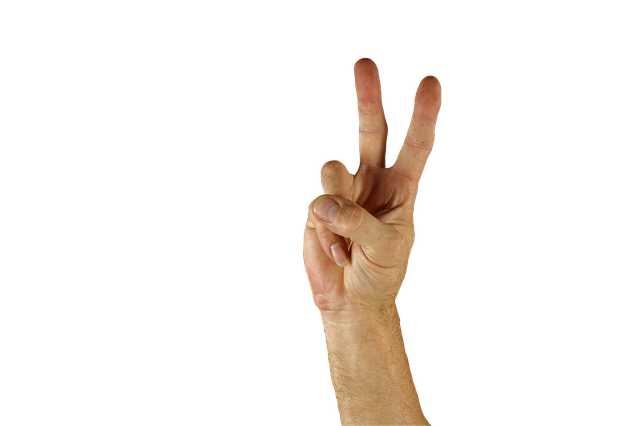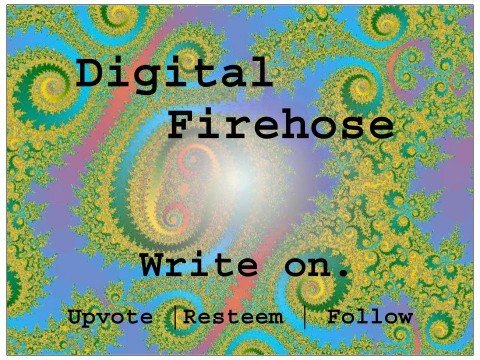
Yesterday, I wrote about how happy I am. That article was an expression of gratitude for my life and the way it is now. I run circles around the young and confused man I used to be. What I have now is a gift to be sure, but it took decades of hard work for me to get to this place, to be aware that such a state is even possible.
Long ago, so long ago, I took a class in conflict resolution. It was a 60 hour course and much of what I learned from there is still with me. I've read so many books on relationships, psychology and parenting, along with all of the collective knowledge on those subjects that I could find on the internet, to find out what it means to relate to other people. Through experience, testing and testing again, I have arrived at what I like to think of as a prime directive:
Err on the side of peace.
In all of my interactions with other people, I am thinking about the prime directive. I think about it because the world is already in pain and I don't need to add to that pain. I err on the side of peace because I've tried the other way, you know, tit for tat, and it doesn't work. I've seen how if someone is angry with me, and I respond with anger, they get angrier, their words get meaner, nastier, and pretty toasty. If I escalate, they escalate, and before I know it, words are out of control.
I also know that when I get angry, I can't think. I might as well be drunk when I'm angry because when I'm angry, I say things I don't want to say, I say things I don't mean. When I'm angry, logic goes out the window. So I allow myself to feel angry, but I wait for the feeling to pass before I do anything. I will observe and acknowledge the anger, but I will not act out on the anger, whenever I can. Most months, I can.
I never make a threat that I have no desire to carry out. I don't make threats because then I might have to follow through. And if I make threats, the other person makes threats. That's tit for tat.
Humans are experts at imitation. You know the expression, "Monkey see, monkey do"? That's us. That is how homo sapiens has survived for so long. Enough good stuff got copied (with improvements) that we were able to reproduce and raise our kids so that they could do the same thing.
So if I get angry, other people in the room get angry. People are a reflection of how I am thinking and feeling. The Universe is a reflection of how I am thinking and feeling. I am mindful of this principle at all times.
To avoid getting caught up in other people's anger, I go into a sort of observer mode. I learned about the observer long ago, while doing stand up comedy one night. I was performing for a local Science of Mind church talent show. The room was packed. I was feeling a heightened sense of awareness the whole evening, but it really shot up when I was there, on stage before a packed room.
I can recall how the lights shone on me, and how I couldn't see anyone with the glare so strong. I can recall how after I said my opening line, a huge wave of laughter washed over me. It was like getting knocked over by a wave at the beach. I recovered my wits and continued with my set, all while noticing a new voice in my head. The observer.
"This feels good."
"I'm alive."
"I love to make people laugh."
"The Observer" is a metaphor I use to describe a component of the psyche. Even longer ago, I had a brief introduction into Transactional Analysis, from Dr. Robert Subby. I was listening to an audio tape of him talking at a seminar. He was describing the components of the psyche, the parent, the adult and the child. He was really funny in his description and very accurate.
I was familiar with the parent and the child part of myself, but I took note of the adult. Subby described the adult as the part of the psyche that just makes observations, gathering information. Doing threat analysis (I don't want my internalized parent or my inner child doing threat analysis), testing character, reliability, and honor among the people around me - that is what the adult, the observer does. Observation without judgment is what the adult does.
When someone I'm with is having a meltdown, I'm an observer. When someone poses a threat to me or my family, I'm an observer. When I'm having strong feelings, I connect with my observer. I take note of how I'm feeling, what I'm doing, and I reserve judgment. I wait for the feelings to pass to see what happens next. I want to know what happens next.
This observer is the part of me that allows me to collect information about my surroundings without passing judgment on anybody or anything. When people are in a panic around me, I'm calm, stoic, making observations and calculations. I might be in survival mode, but I restrain myself to retain the capacity to think. I've tried doing it the other way, and that has cost me dearly, so I do it this way when the environment gets stressful.
I've been like this for more than a decade, maybe two. This observer allows me the capacity to de-escalate in nearly any situation. It's a fantastic customer service aid. I can talk any hot customer down from the stratosphere because I don't take anything he says personally when I'm observing. I've learned not to take anything personally as an observer.
When I want peace, I go inside. Not my monkeys, not my circus. Everyone is doing the best they can. My job is to make it easier for everyone else to do the best they can. That means, I don't throw gasoline on fire. That's an interpersonal skill. If someone is having a fit, I don't egg them on, I don't cause further injury.
Now all of this comes with experience. I've made many mistakes. My timing was off. I said the wrong thing. I did the wrong thing. I made the situation worse many times, but I knew that I had to keep trying, to keep learning, or it would happen again.
The lesson will be repeated until it is learned.
Yeah. That. I had that in my head, over and over again. It was like Groundhog Day. My life is like that. Every day is pretty much the same, I just get to decide how the day will go. So I make a point to err on the side of peace. I make a point to de-escalate in conflict because I know that people will say things they don't really mean. I know people will do things they will sincerely regret later. I don't want to find out how far someone is willing to go to prove they're right.
I err on the side of peace because I think in terms of systems. I remember what I learned about computers in school, "garbage in, garbage out". I also remember what I learned in physics, "if you add heat to a system, it gets hot, and if you take heat away from a system, it gets cold". I think like that. Inputs and outputs.
I don't add heat to someone who is hot. When someone is hot, I speak in firm, soothing tones. I appeal to their need to use language. I use words to calm them and keep talking because I've found that it's hard to listen to someone and be angry at the same time. To listen, one must set aside their anger. This works great with my kids when they're angry.
I've also learned that the mind has an incredible capacity to wander, and that capacity is a requirement for our very survival. The mind wanders to keep us alive. So I use that feature of the mind to help defuse a high intensity situation with the people around me. After much practice, my timing is much better now.
All of this is to err on the side of peace. If I'm going to make mistakes in my interpersonal relationships, I might as well err on the side of peace. At this time, I can honestly say that I have no personal adversaries. I don't have to look over my shoulder for anything I've done in my past. I comport myself in a way that allows me to sleep well at night. My moral compass is in my chest and my gut.
I have found that if I err on the side of peace, I tend to have greater peace. And I do.
Write on.


Slogan by @tecnosgirl
Plan B for Humanity
A basic guaranteed income in the context of Maslow's Hierarchy of Needs
A sort of political movie review: Star Wars: Rogue One
Happiness isn't getting everything you want - happiness is a skill
The opposite of love is not hate, it is apathy
A short but growing list of people I admire, who have helped me, and/or influenced me, my thinking and/or my posts:
- @taskmaster4450 - The Age of Abundance is here
- @scottsantens - The Age of Universal Basic Income is here
- @gric - A very cool artist with some interesting perspectives
- @gringalicious - great writing, cooking and photography
- @luzcypher - for teaching me about how gift economies work